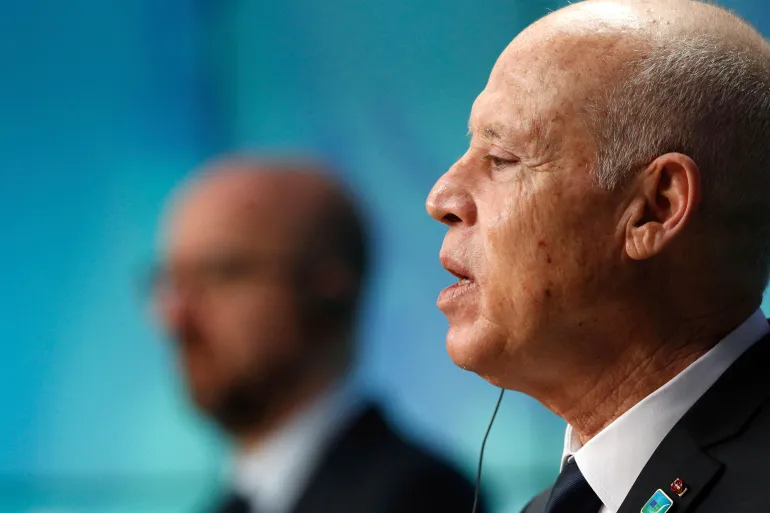Dictatorship and dictatorial tendencies of elected rulers are alarmingly manifest in countries across the globe. Ambitions of individual leaders and Far-Right groups to enjoy unfettered freedom to do whatever they like and serve the interests of their financiers-backers have, in recent times, been spawning the growth of dictators and autocrats. But, the case of Tunisia stands out as a warning to democracies where the Opposition is in tatters and it fails to present before the people a credible alternative to the current dispensation. Corruption and the people’s disenchantment with the political class can create the breeding ground for dictators. Tunisia, the cradle of Arab Spring that fostered the growth of democracy in the Arab world in 2011, can offer an object lesson in this regard.
Tunisia’s President Kais Saied detained over a dozen politicians, activists, and critics and labelled them as traitors or criminals for their criticism of the way he is running the country. Among those arrested by the Tunisian police are Issam Chebbi, head of the Opposition Republican Party, prominent Saied-critic Ezzedine Hazgui, and Chaima Issa and Jaouhar Ben M’barek, both leading members of the National Salvation Front, Tunisia’s coalition of Opposition parties. Saied also targeted, during this week, the country’s minority migrants from sub-Saharan Africa, alleging that undocumented immigration from African countries was changing Tunisia’s demographic composition. Dozens of migrants were detained in a move harshly criticised by human rights organisations and activists. Going after migrants and minorities has become a common alibi for autocrats globally to divert people’s attention from real problems and thereby remain entrenched in power.
The President did not stop at that. He expelled Esther Lynch, the Irish general secretary of the European Trade Union Confederation (ETUC), after she called on Tunisia’s government to release Anis Kaabi, an official within the Tunisian General Labour Unions (UGTT). “I am here in Tunisia to say to President Saied: The world sees what you’re doing — Stop your attacks on trade unions now,” Lynch had told a UGTT rally. That was enough for Saied to accuse her of “blatantly interfering in Tunisian affairs,” and gave her 24 hours to leave the country. The expulsion of the union official reflects the shrinking space for democracy in Tunisia.
A series of economic crises has triggered inflation, reduction of subsidies and higher unemployment rates in Tunisia. When former law professor Kais Saied won the country’s presidential election in 2019, he enjoyed wide popular support as the people were looking for a person outside the political establishment to ensure economic improvement and an end to corruption.
However, a change came over Saied two years later and on July 25, 2021 he suspended the elected parliament, dismissed the then-Prime Minister Hichem Mechichi and dissolved democratic institutions such as the Supreme Court. He touted these anti-democratic measures as his democratic roadmap and held a referendum on a new constitution that sought to consolidate the President’s powers. The new constitution was approved in July 2022 with a lower participation of voters following a boycott by several political parties. The recent parliamentary elections in December 2022 continuing into January 2023 saw a record low voter turnout of around 11%.
Even in such a situation, Saied went ahead with his unprecedented crackdown on Opposition politicians, activists and journalists taking advantage of a lack of public support for his political opponents and a fractured Opposition. The entire political class in Tunisia has been somewhat discredited for their failure to deal with the country’s economic problems. The country has been grappling with a string of economic crises for the past few years and the miseries have been compounded by the pandemic and the Russian invasion of Ukraine. The current inflation of around 10% could also rise further in the coming months due to higher taxes, lower food and energy subsidies, and the halted funding by the International Monetary Fund (IMF).
The situation is tailor-made for the rise of the dictator. If Saied succeeds in his attempt to shackle his detractors and muzzle the voice of protest, it would be a sad end of Tunisia’s tryst with destiny and a dangerous trend for democracy wherever the Opposition is feeble and in disarray.
